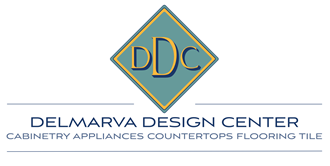Designing a kitchen involves countless decisions, each pivotal in creating your ideal culinary space. Whether you have an open floor plan kitchen, a closed floor plan, a minimalist kitchen design, or a maximalist one, selecting the proper kitchen countertop stands out as crucial. Prioritizing visual appeal, durability, or functionality and understanding the nuances of various countertop materials is essential to making an informed choice.

Porcelain Countertops: The Durable and Versatile Option
Porcelain kitchen counters are renowned for their durability, scratch, stain, UV, and heat resistance; they are ideal for high-traffic kitchens. They are crafted from dense ceramic material, blending natural clays with silica, feldspar, and oxide minerals. Unlike natural stones requiring sealing, porcelain is impervious to moisture, making it maintenance-friendly. With a wide range of colors and patterns, porcelain offers a luxurious look at a lower cost. Most brands carry large-format slabs and vein-matching options. If you are after a minimalist kitchen design, the induction cooktop integration will appeal to you for a sleek, functional design.
Cons of porcelain countertops include the possibility of cracking due to blunt force, limited edging options, and cost if you have a modest budget. However, compared to natural stones, porcelain is a less expensive option with many benefits, making it an all-around fabulous choice for kitchen countertops.
Quartz Countertops: Beauty and Durability Combined
Quartz countertops blend natural quartz with resins and pigments, offering aesthetics and functionality. Famous for their durability and nonporous nature, quartz surfaces resist stains, mold, and bacteria. Cambria surfaces, backed by a lifetime guarantee, come in diverse colors and patterns to suit any kitchen style. Quartz remains a popular choice for its low maintenance and aesthetic versatility.
However, there are a few cons to choosing quartz surfaces for your kitchen countertops. The first is cost, as quartz has one of the highest price tags of all countertops. It is also vulnerable to heat damage and UV rays. That is why it is not recommended for outdoor use. If you are considering an outdoor kitchen project, it’s best to check out materials like porcelain, granite, concrete, or tile.
Quartzite Countertops: Natural Beauty with Exceptional Durability
Quartzite countertops are natural stone surfaces renowned for their strength and beauty. They form from sandstone and quartz; quartzite undergoes a metamorphic process that results in a dense, rugged material ideal for kitchen countertops. It offers similar aesthetics to marble with unique veining patterns, making each slab a work of art. Quartzite is highly durable, resistant to scratches and heat, and requires minimal maintenance compared to marble, though sealing may be recommended to enhance longevity. Its natural elegance and robustness make it a favored choice for homeowners seeking beauty and practicality in their kitchen design.
Despite being harder than marble, quartzite remains porous and requires regular sealing to prevent stains and etching. Our post on “How to seal quartzite countertops” is a great resource when maintenance is required. Color choices are limited to earthy tones and subtle patterns. The availability of quartzite slabs may also be limited depending on location.
Marble Countertops: Timeless Elegance with Practical Considerations
Marble is a tried-and-true material for kitchen countertops. It’s a classic, and for good reason, marble exudes timeless elegance, boasting a luxurious appearance unmatched by most other materials. The natural veining adds glamour and individuality to any kitchen, creating a classic and sophisticated ambiance. Besides its visual beauty, marble is suitable for kitchen surfaces due to its ability to stay cool to the touch, making it perfect for avid bakers who deal with temperature-sensitive ingredients daily.
It does have a few downsides that are worth pointing out. Marble is inherently a porous stone, requiring regular sealing to prevent substantial staining. It can also be prone to etching, meaning that the surface will scratch or etch where the polish or sealant fades. Ultimately, while some homeowners choose the visual intrigue of marble despite its drawbacks, others opt for a man-made material to skip out on this high-maintenance stone.
Granite Countertops: Classic Appeal with Robust Durability
Granite, sourced globally and cut to fit kitchen specifications, offers durability and aesthetic drama with its natural veining and diverse color palette. Resistant to scratches, chips, and heat, granite requires minimal upkeep and maintains an excellent surface ideal for baking. Regular sealing is crucial to protect against stains from acidic liquids, and installation considerations include its weight and cabinet support requirements.
However, like marble, granite can easily be stained or scratched by acidic liquids like wine or vinegar, so it is of the utmost importance to seal it regularly to prevent any unnecessary damage. It is also very heavy, so the cabinets underneath must have enough strength to support it, and care must be taken during installation.
Dekton by Cosentino: The Ultracompact Solution
Dekton countertops blend over 20 minerals into a durable, UV-resistant, scratch-proof, nonporous surface suitable for indoor and outdoor kitchens. Available in various colors, thicknesses, and finishes, Dekton offers versatility and aesthetic appeal with options like natural veining and metallic finishes. Its robust nature and easy maintenance make it a practical choice for contemporary kitchens.
Choosing Your Ideal Kitchen Countertop
Selecting the perfect kitchen countertop involves balancing aesthetic preferences, practical needs, and budget considerations. Whether opting for the timeless allure of marble, the durability of quartz, the drama of granite, the versatility of porcelain, or the modern appeal of Dekton, each material offers unique benefits suited to different lifestyles and design sensibilities.
Remember to integrate your countertop choice harmoniously with other kitchen elements for a cohesive and functional culinary space that reflects your style.
If you are looking for a Delaware design center, our kitchen design showroom offers a variety of options. Start designing today!
